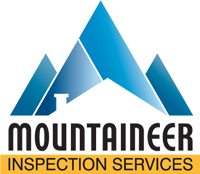Buying a home is one of the most important decisions you’ll ever make in your life, so doesn’t it make sense to get all the information possible about the house you’re going to buy?
Think about it, this is where you’re going to raise your family and create memories. Aside from the financial aspect, there’s also a lot of emotion that will be invested into your home.
One of the best ways to make an informed decision has always been to get a home inspection. With the changing times there is an opportunity for buyers to also get a home energy audit prior to purchasing to see just how efficient the home is.
There are great loans out there that allow you to do some upgrades to energy efficient items and put them into the loan.
First of all, it’s important to understand what home inspections and home energy audits are. A home inspection is a full-scale visual examination of a house that will give you a good idea of what you can expect in terms of future repairs, improvements and maintenance should you choose to purchase that house. Experienced inspectors can pick up on certain clues that could uncover hidden issues covered up by a fresh coat of paint.
Energy audits partner perfectly with home inspections to provide you with an even deeper look at the inner workings of a home. An energy audit is an in-depth analysis of a home’s energy performance. Through diagnostic testing, an energy audit will reveal where and how a home is losing energy. Losing energy can result from any number of issues, including poor insulation, air leakage and inefficient appliances. All of these could lead to the same place: an uncomfortable home that is expensive to maintain.
Remember a home inspection is a complete visual inspection of the home, from top to bottom. At the end of it, you’ll receive a written report, including the inspector’s summary notes about any health and safety issues. These are some of the areas that home inspectors look at that appear fine and then you learn that an energy audit can tell you even more about these areas.
Home energy auditors are highly skilled in energy efficiency. They understand how a house functions as a set of inter-related systems, and how an issue or change in one area can impact another area of the home. Through diagnostic testing with specialized equipment, an energy audit (also known as a comprehensive HERS Rating) pinpoints those parts of your home where energy is being lost. Typically, a HERS Rating will include a visual inspection to assess:
•Building envelope features (windows, doors, insulation, ducts) and ages
•Heating, cooling and ventilation equipment types, characteristics and ages
•Appliance and lighting characteristics
•Comfort complaints
•Visible moisture issues
•Visible health and safety issues
Diagnostic testing using specialized equipment to determine:
•The amount and location of air leaks in the building envelope
•The amount of leakage from HVAC distribution ducts
•The effectiveness of insulation inside walls and ceilings
•Any existing or potential combustion safety issues
The report provides a computerized simulation analysis to calculate a rating score on the HERS Index. This report will also contain a cost/benefit analysis for the recommended improvements and expected return on investment.
So when it comes time to book that home inspection for your new home, do yourself a favor and add on an energy audit as well. It’s the best way to make an informed decision about the house where you’ll be raising your family!
Eileen Schamber is the president of the Lodi Association of Realtors and can be reached at president@yourlocalaor.com
